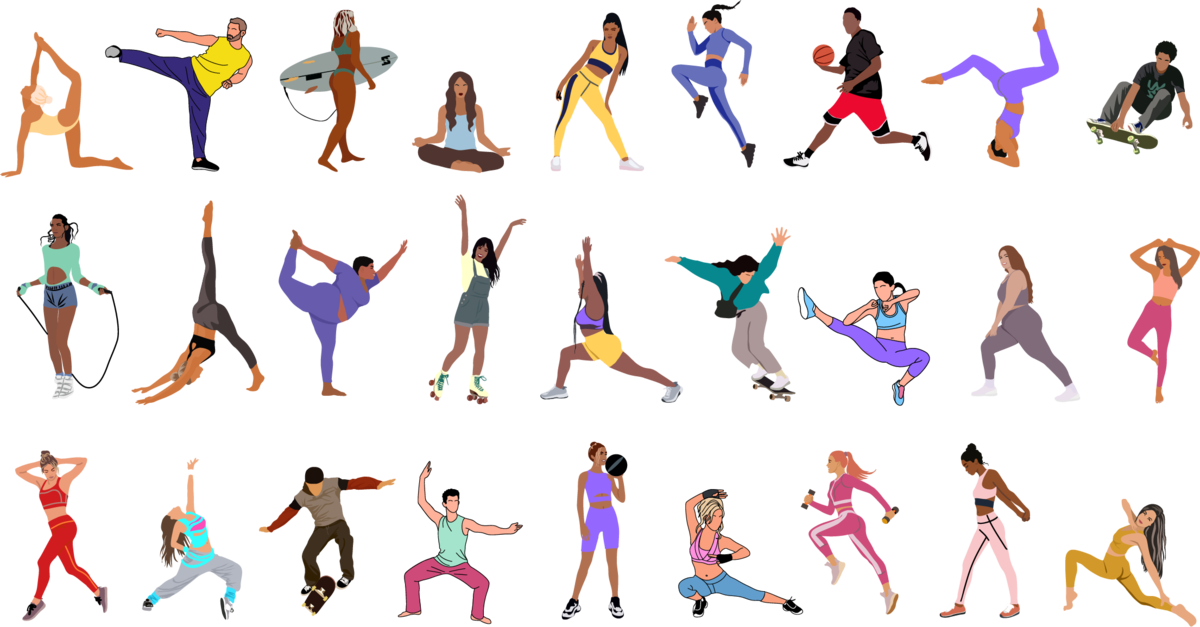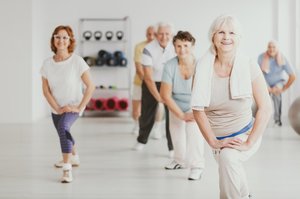What are some common health issues you see today?
‘Physical inactivity, or what I often refer to as "sitting disease," poses significant health risks, second only to smoking. It increases the chances of various chronic diseases, such as obesity, heart disease, type 2 diabetes, high blood pressure, and certain cancers. By contrast, regular physical activity helps control body weight, improves cardiovascular health, strengthens the musculoskeletal system, enhances mental well-being, and boosts energy levels. Exercise also promotes better sleep, reduces stress, and enhances mood, memory, and other cognitive functions.’

How do collagen peptides contribute to an active lifestyle, from a healthcare perspective?
‘To combat the adverse effects of physical inactivity, it is crucial that we encourage and prioritize regular physical activity. We can do this through moderate-intensity activities, such as brisk walking, cycling, jogging and running, aerobics, swimming, and participating in team sports. My advice is to aim for at least 150 minutes of moderate-intensity aerobic activity, or 75 minutes of vigorous-intensity activity, per week, along with muscle-strengthening activities on two or more days. Incorporating everyday movements during all waking hours is also essential for maintaining health.

‘For people who have an active lifestyle or participate in sports, collagen peptides can play a valuable role. Collagen is a vital component of our tendons, ligaments, cartilage, and bone structure. Strengthening these tissues through supplementation can help reduce the risk of joint pain, sports-related strains, sprains, and other soft tissue injuries that may occur during or after workouts. Studies have indicated that collagen supplementation can support muscle recovery and aid in reducing post-workout muscle soreness. This can contribute to a faster recovery process, allowing individuals to return to their training routine more quickly.’
What about the collagen and protein we get from a healthy diet?
‘Many people are reducing their meat intake and emphasizing vegetables, legumes, kale, fruit, berries, seeds, grains, nuts, spices, and eating mostly fish and some poultry as their animal food source. While this is commendable, it may decrease our collagen consumption. I refer to this as the "collagen paradox": the healthier your diet, the less collagen you obtain. A typical plant-based diet with some fish provides only 1-2 grams of collagen. Therefore, additional supplementation, especially for those with increased exercise habits and higher needs, becomes relevant.’
The ‘collagen paradox’ is that the healthier your diet, the less collagen you obtain. It makes supplementation very relevant’
How do different demographics benefit from collagen peptides?
Healthy agers

‘I frequently come across patients and clients who love to exercise but experience the wear-and-tear effects on their bodies. This is partly due to the natural decline in collagen production as we age. To address this, I take a holistic approach, recommending lifestyle changes, such as adopting an anti-inflammatory diet, engaging in a broader variety of exercise types, managing weight, and improving sleep habits. Additionally, I often advise a daily collagen supplement.’
Elite athletes

‘For elite athletes, the focus is on injury prevention, expedited recovery after workouts, and enhancing overall body resilience. Intense physical training and repetitive movements can place significant stress on joints, tendons, and bones. By strengthening these tissues through supplementation, athletes can minimize the risk of injuries during training, facilitate faster recovery, and accelerate the healing process for common sports-related injuries. This enables athletes to train more frequently and intensively. Ultimately, these factors contribute to improved athletic performance across various sports disciplines. In my professional opinion, collagen supplementation can play a supportive role, and this perspective is supported by scientific studies.’
Active individuals

‘For individuals who regularly attend the gym and engage in activities such as weightlifting and high-impact exercises, it is important to recognize the strain these activities can place on the joints and tendons. By reducing the risk of joint pain and sports-related injuries, while also supporting recovery, collagen can help gym-goers maintain their fitness regimen.
‘Furthermore, individuals who frequent the gym often prioritize maintaining a healthy and fit physique. Collagen has the potential to improve skin elasticity, which may help reduce the appearance of fine lines and wrinkles. This aspect of collagen supplementation can contribute to a more youthful and toned appearance, should that be a personal goal for the individual.’
Have you witnessed any success stories involving collagen peptides?
‘Yes, I have come across several success stories involving collagen peptides in my practice. For instance, a 71-year-old male, a former national champion in middle-distance running, sought my help for osteoarthritis in both knees as well as worn-down cartilage. He was unable to run without pain. I recommended a healthy Mediterranean-inspired diet, along with collagen peptides and omega-3 fatty acids supplementation. The goal was to prevent further joint and meniscal damage, strengthen his cartilage, tendons, ligaments, and muscles, and ultimately restore pain-free running abilities. Four months later, he is able to jog with significantly reduced pain, and we are confident that further improvement is possible.
‘Additionally, a 20-year-old male tennis player came to me with overuse injuries in his wrist. The injuries were jeopardizing his opportunity to join a major university's tennis team. Clinical studies I encountered while researching my book on collagen highlighted its ability to prevent joint discomfort, pain, and expedite recovery, so I advised him to incorporate collagen peptides in his already healthy diet. After three months, his wrist complaints disappeared. However, he later stopped taking collagen without my knowledge, resulting in the return of wrist pain. He has now chosen to resume collagen supplementation.’

About Jerk W. Langer
Jerk W. Langer is a lifestyle-focused physician, public speaker, and science communicator, based in Copenhagen, Denmark. He is the author of several bestselling books, including one on collagen. He frequently appears as an expert on Danish national television, radio shows, podcasts, and news media. Jerk is a lecturer at the University of Copenhagen, Faculty of Health and Medical Sciences, as well as in postgraduate education for general practitioners. Jerk is a member of several advisory boards and expert committees. In his free time, Jerk is an avid marathon and ultramarathon runner, having completed over 400 races.
Learn more about Jerk’s personal experience with health, fitness, and collagen peptides supplementation in part one of this two-part blog series. And, stay connected with Jerk on his Instagram, Facebook, and website.
